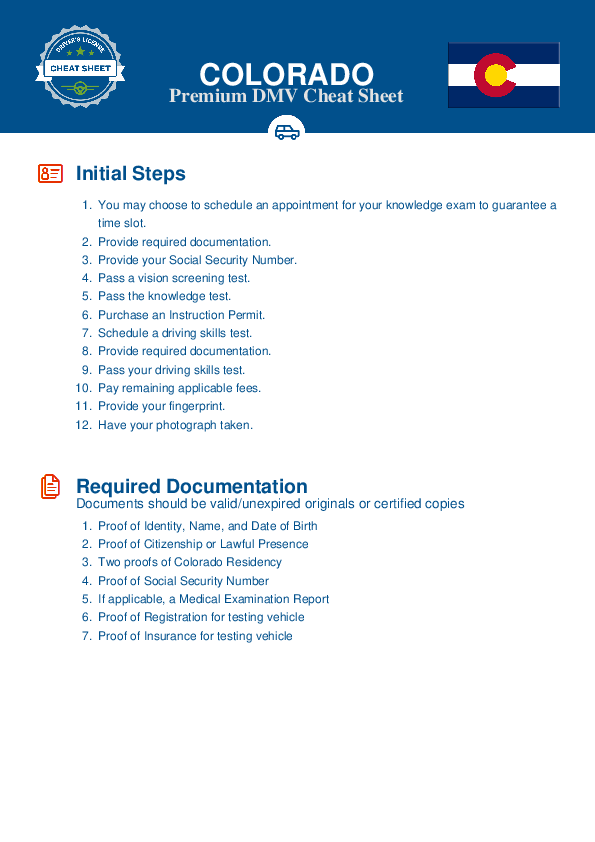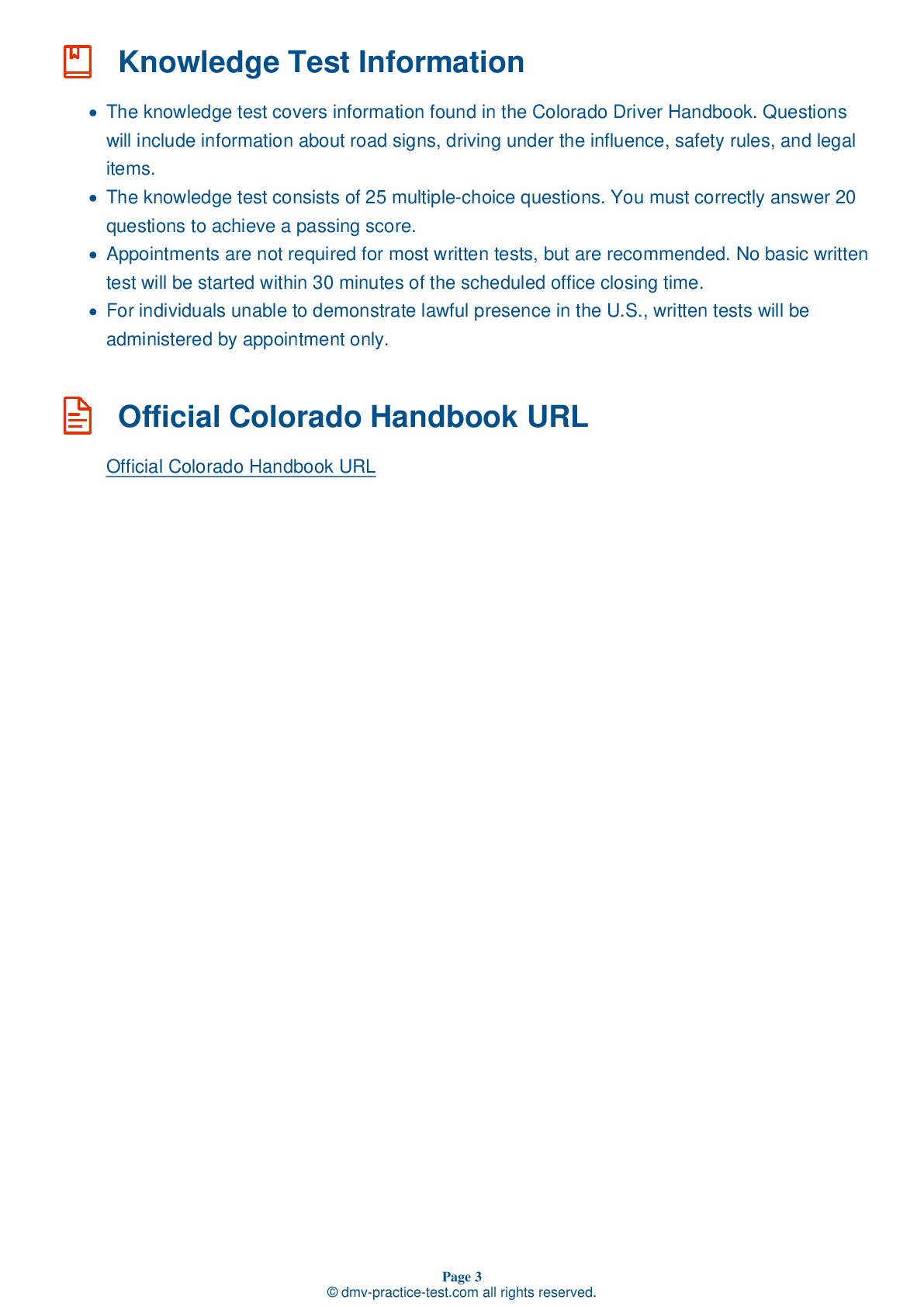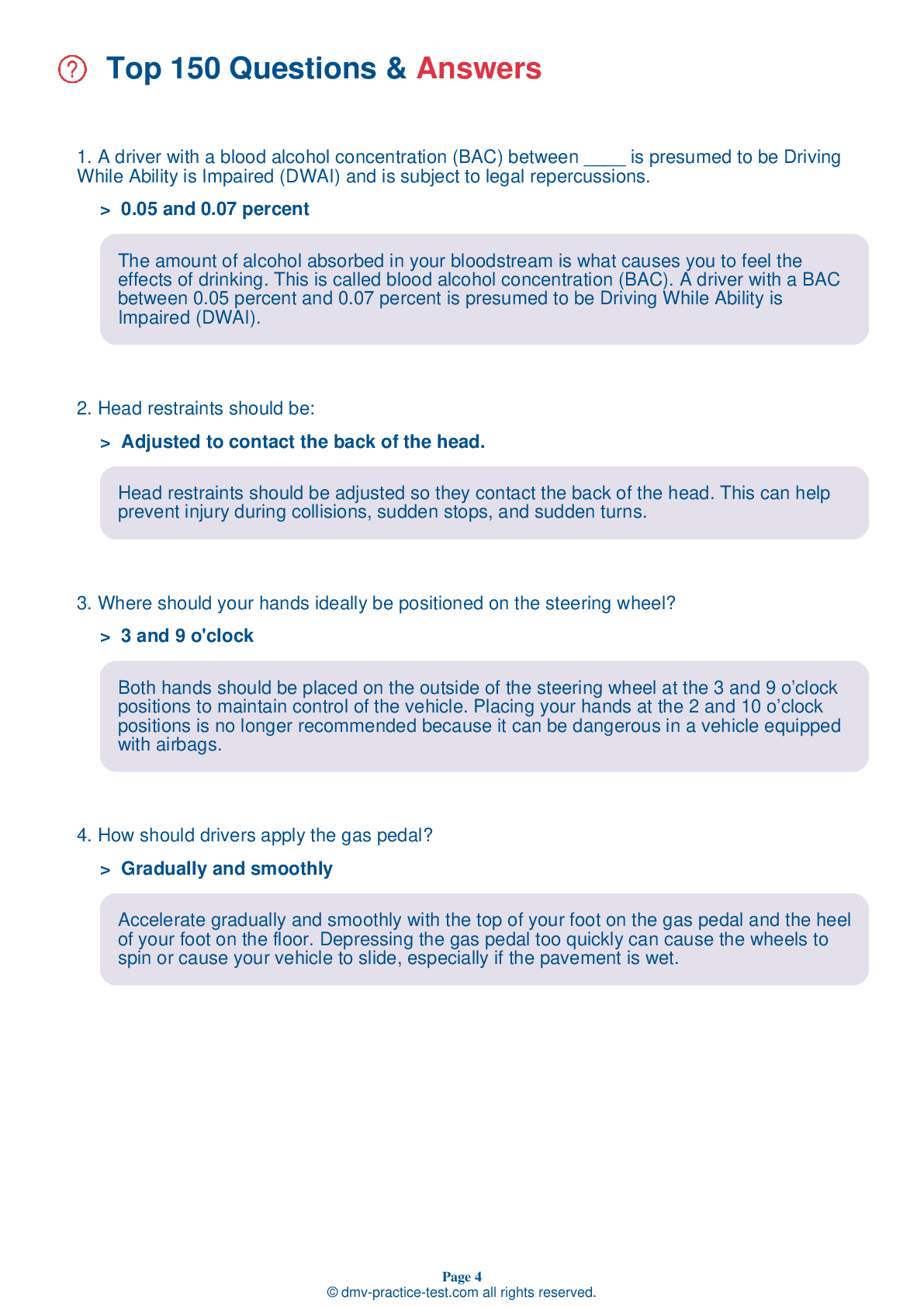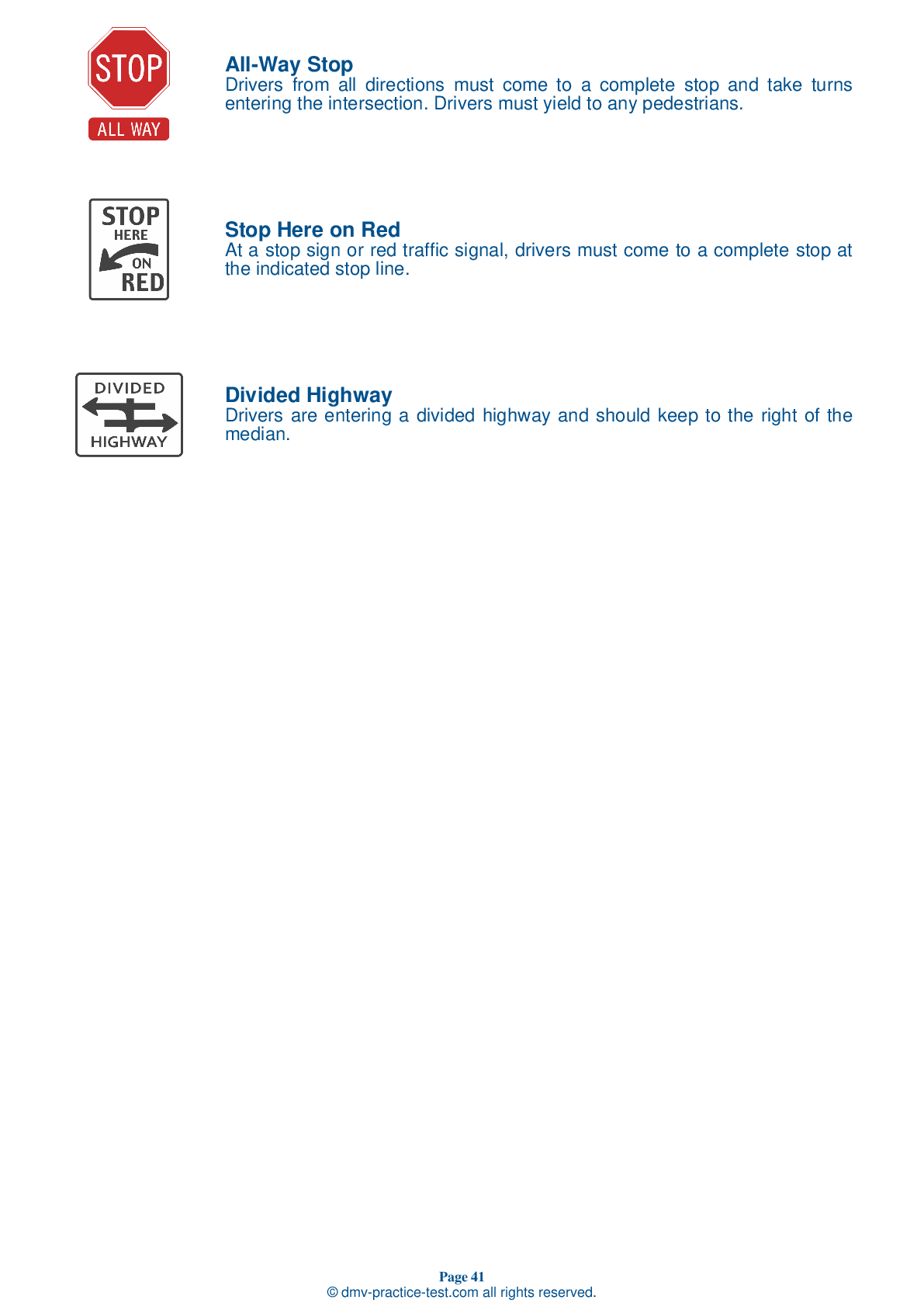FREE Colorado DMV Practice Test #21 Page 4 of 4
This DMV practise tests for Colorado was just updated for January 2026. It includes questions based on the most important traffic signs and limitations from the Colorado Driver Handbook for 2026. To study for the DMV driving permit test and driver's licence exam, use actual questions that are very similar (often identical!) to the DMV driving permit test and driver's licence exam.
Each practise test question provides a tip and explanation to help you recall the ideas. Questions about road rules, traffic signs, and driving statutes, as well as information from the Driver Handbook, will be included in the written portion of the official DMV test.
You must properly answer 20 out of 25 questions to receive the requisite passing grade. To help you prepare for your Colorado instruction permit or driver's licence, take our DMV practise test.
The DMV exam is accessible in a variety of languages.
Using a testing aid of any kind will result in an automatic fail, and the DMV may take additional action against your driver's licence, so don't do it.
19 . This road sign means:
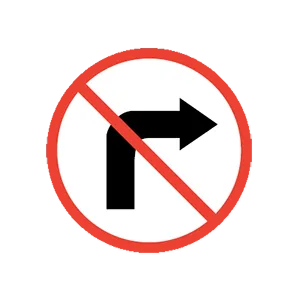
Regulatory signs display laws that drivers must always obey. Right turns are not permitted where this sign is present.
20 . You are driving on a highway divided by two solid yellow lines. You may:
Double solid yellow lines are used to mark roadways where passing is prohibited from both directions. You may cross these lines only to make a left turn into or from an alley, private road, or driveway.
21 . This road sign means:
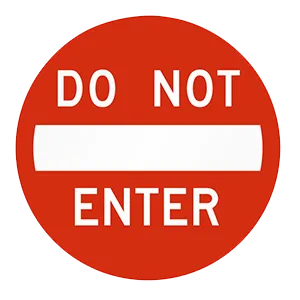
If you drive past these signs, you are going the wrong way and are at risk of a head-on collision. You should cautiously turn around.
22 . You are driving up a hill and are approaching a heavy truck from the rear. You should know that:
Drivers must be aware that large vehicles often travel at a speed slower than the posted speed limit, especially when driving on an incline, and should use caution when approaching a large vehicle from the rear. When on a hill with limited visibility, it is unlawful to pass another vehicle.
23 . While driving on a two-lane road without bicycle lanes, you encounter a bicyclist traveling in the same direction. What is the safest way to pass the bicyclist?
You should pass a bicyclist the same way you would pass any other vehicle, but not so fast or close to them that you throw debris in their face or blow them around with the draft of air from your vehicle. Allow at least 3 feet of space between your side mirror and the bicyclist, or at least 5 feet on higher speed roads or when there is a group of bicyclists. Honking unnecessarily may startle riders and make them more likely to crash.
24 . When a vehicle with an Anti-Lock Braking System starts to lose traction on a slippery road, drivers should:
If their vehicle loses traction on a slippery road, a driver with an Anti-Lock Braking System (ABS) needs to press down hard on the brake pedal, hold it, and steer out of danger. In an emergency situation, the ABS automatically pumps the brakes at a faster rate than the driver could. Removing steady pressure from the brake pedal or pumping the brakes will disengage the ABS.
25 . You have the right-of-way when turning left on which of the following traffic signals?
A green steady arrow means you may pass through the intersection in the direction that the arrow is pointing. Oncoming traffic is required to stop for turning traffic.
See the exact questions that will be on the 2026 Colorado DMV exam.
99.2% of people who use the cheat sheet pass the FIRST TIME
LT gives us an insight on how the cheat sheet provided her with all the study questions she needed before taking her test.
Joe initially studied with the handbook and failed his test, he eventually found us online, studied and pass his test the first time around.
